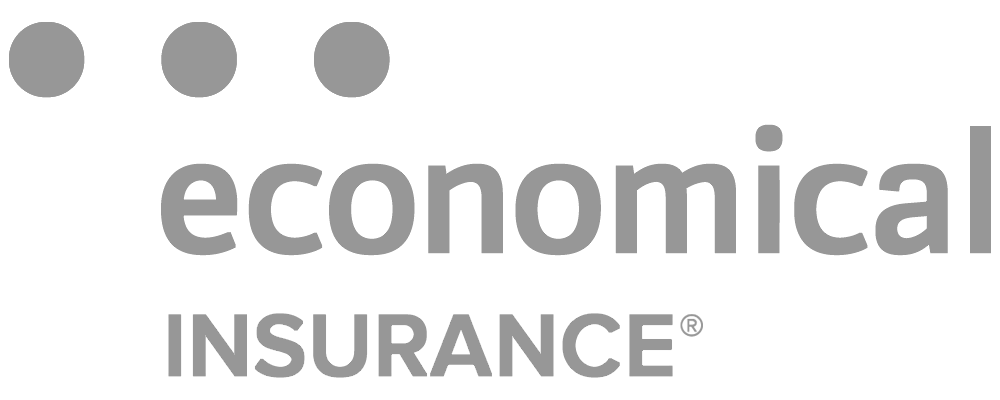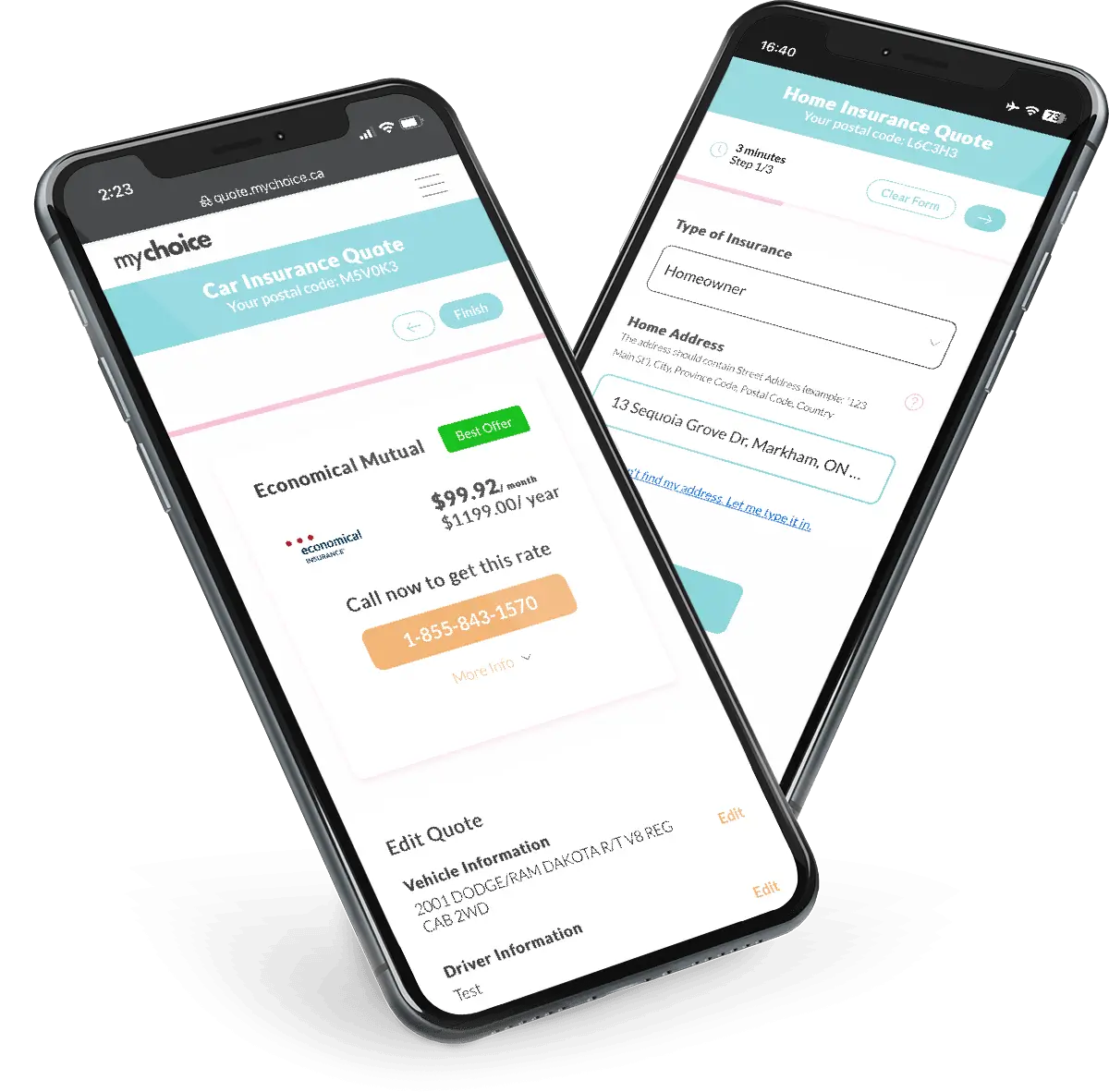Why You Should Compare Car Insurance
Selecting a car insurance policy can be confusing, especially with all the insurance companies bidding for your hard-earned dollar. Shopping around for your car insurance policy is the key to getting the best deal out there as it allows you to assess all your different coverage options, hopefully in one place.
That’s where we come in, at MyChoice, we make that process easy, we give you choice and the ability to compare all your different options from Canada’s top insurers. Not forgetting by using MyChoice you can view all your available options in the same place and have peace of mind knowing that you got the best deal, tailored for you.
Who Provides Car Insurance Quotes in Canada
The following table highlights some of the most popular car insurance providers across Canada and the provinces where they operate.
How to Get Cheaper Car Insurance
Most Common Car Insurance Coverage Options in Canada
The coverage options available to you in Canada will ultimately depend on which province you live in but generally speaking, there are consistencies across each province that can be grouped into either mandatory coverage, recommended add-ons or optional add-ons.
What Information Do You Need For a Car Insurance Quote
To get a car insurance quote you’ll need to have the following information on hand so you can get an accurate rate. Regardless of whether you’re switching insurance providers or getting auto insurance for the first time, you’ll need to provide – driver details, vehicle details, previous insurance history and current insurance information.
What Factors Affect Your Car Insurance Rate
There are many different factors at play that affect the price of your car insurance, some are given a greater level of importance by certain insurance companies and some are not. One thing that’s important to remember is you’ll often receive a different rate to your neighbour as you’ll likely have a different vehicle and personal insurance history, the rate you receive doesn’t just come down to where you like.
Take a look at some of the more important elements that affect the price of your car insurance below:
Average Auto Insurance Rates by Province
The following table represents a comparison of the average car insurance rates across the Canadian provinces.
| Province | Avg. Per Year | % Diff From National Average |
|---|---|---|
| British Columbia | $1,516 | 47% |
| Alberta | $1,211 | 17.5% |
| Saskatchewan | $775 | -24.8% |
| Manitoba | $1,001 | -2.9% |
| Ontario | $1,673 | 62.2% |
| Quebec | $718 | -30.5% |
| New Brunswick | $763 | -26% |
| Nova Scotia | $820 | -20.5% |
| Prince Edward Island | $755 | -26.7% |
| Newfoundland | $1,075 | 4.2% |
This annual summary provides a comparison of the cost of having to insure your vehicle, depending on where you live. Leading the way is Ontario which is feeling the pinch of rising costs in 2024. Next on the list is British Columbia, thanks largely due to their private government run insurance system before Alberta respectively.
Most Popular Car Insurance Providers in Canada
The following table highlights some of the most popular car insurance providers across Canada and the provinces where they operate.
Take a look at our top companies in Ontario for a more detailed overview, plus some additional insurance providers that are not on the list below.
| Car Insurance Provider | Provinces Available* |
|---|---|
| Aviva | All exc. BC, MB, SK |
| Canadian Auto Association (CAA) | All exc. BC, MB, SK |
| Allstate | AB, NB, NS, ON, QC |
| Belairdirect | AB, NB, NL, NS, ON, PEI, QC |
| Intact | Nationwide |
| TD Insurance | All exc. BC, MB, SK |
| RBC Insurance | All exc. BC, MB, SK |
| Travelers | AB, NB, NL, NS, ON, PEI, Territories, NU, YK |
| Wawanesa | AB, NB, NL, NS, ON, PEI, QC |
Why Has The Price of Auto Insurance Gone Up in 2024?
Insurance companies are already seeking rate increases again to their 2024 prices, partly due to their own costs increasing and some external factors.
Claims Cost and Inflation: Insurers’ claim costs, impacted by inflation, affect auto insurance rates. Unfortunately, as the cost of living continues to increase so does the price of insurance.
Increased Traffic Post-Pandemic: With the return to normal traffic levels, there’s a likelihood of more claims. During the pandemic, fewer claims were processed due to less traffic, leading to decreased or stable rates and rebates. Now, as driving rates normalize, insurers are looking to raise rates.
Rising Repair Costs: Inflation and supply chain issues have increased the costs of cars, parts, and services. The complex design of modern cars also contributes to higher repair costs.
Supply Chain Issues: Supply chain disruptions have greatly impacted the automotive industry across Canada, particularly due to its global nature and reliance on parts from various countries. Additionally, logistical challenges like container shortages and port congestion have exacerbated these problems, resulting in longer lead times and higher costs.
Rise in Auto Theft in Canada: A significant increase in car thefts, especially catalytic converters, is putting upward pressure on insurance rates. These thefts are costly for insurance companies.
Car Insurance Fraud: Some common examples include staging an accident, dumping a vehicle, lying about where you live or not telling the truth to insurance companies about car repairs. Fraud will always be a problem but this does play a role in the price increase for car insurance in 2024.
Number of Licensed Drivers by Age in Canada
The below chart offers a comprehensive overview of the distribution of licensed drivers by age group in the year 2021.
A total of over 27 million drivers were recorded, with the largest number falling within the 65+ age bracket, with 5,553,805 licensed individuals, a surprisingly high number of licenses retained or obtained by the senior population in Canada. The age bracket 25 – 34 and 35 – 44 are next on the list, showing a robust representation of middle-aged drivers.
Commonly Asked Questions About Auto Insurance
How much does car insurance cost in Canada?
In Canada, the cost of car insurance varies by province due to different insurance systems and factors like accident rates and regional regulations. Our table above shows the average cost by province.
These are general averages and individual rates can vary greatly based on personal factors like driving history, vehicle type, and specific location within a province. For example, insurance costs can range from around $1,845 annually for a Tesla in Ottawa for a 45-year-old driver with a clean record to over $4,000 for a BMW in Mississauga for a 20-year-old driver with 3 demerit points, demonstrating the impact of personal factors on insurance premiums.
What kind of auto insurance policies are out there?
As previously mentioned above, there are three main areas of auto insurance policies available in Canada, they are mandatory coverage, recommended coverage and optional add-ons. We dive deep into each one and specific coverages further above.
What are the penalties for driving without insurance?
Typically, fines can range anywhere between $5,000 – $50,000, your license suspended or your vehicle impounded. Not only is this bad in the short term it also does no favours for you in the long run, if you are convicted you can expect to be labelled, as what the insurance companies like to call, a high risk driver. As a result of this, you will no doubt have to pay higher than average insurance rates for the foreseeable future.
Is car insurance required by law in Canada?
Simple answer, yes. If you hold a driver’s license and drive a car you must ensure that you have some sort of car insurance, no matter what province you reside in.
Is it cheaper to pay monthly or annually for car insurance?
The short answer is yes, generally paying annually will be cheaper than monthly. Some insurers offer a discount of up to around 7%.
Will a drivers ed course make my car insurance cheaper?
If you can show you are a safe driver then you should receive cheaper car insurance, as a new driver this can be tough but one way to overcome that is to enroll in a government-certified driving school course.
However, this is not available in all Canadian provinces, the driving school discount is only available in Alberta, New Brunswick, Newfoundland & Labrador, Nova Scotia, Ontario and Prince Edward Island.
Does car insurance differ by province?
While there are consistencies across provinces they are not the same, minimum coverage amounts will vary and some provinces like British Columbia and Manitoba have their car insurance provided by government-owned corporations.
Can I be an Uber driver with regular car insurance?
Even though Lyft and Uber cover you with commercial insurance during rideshare service, it’s mandatory to carry your own car insurance. In Canada, all drivers are legally required to have third-party liability coverage, a component typically included in standard insurance policies.
What happens when I receive an auto insurance quote I like on MyChoice?
When you complete our quoting form, you’ll be shown a list of rates and we assume that the quote you like is the cheapest one.
After that, in most cases, one of our broker partners will contact you right away to see if you want to proceed and purchase the policy, or alternatively, you could call the brokerage directly with the number we provide. The broker will be able to answer any questions you have.
In the scenario where your cheapest rate is from a direct insurer, think Onlia for example, you will have the option to purchase your policy online with them, 24/7, just follow the link once you see the rate and complete the purchase with them. This would be a similar process for any of our other direct insurance partners.
What car insurance companies will I get to see quotes from?
MyChoice partners with over 30 top insurance companies in Canada, offering a mix of direct insurers and traditional insurance companies, giving you the ultimate amount of choice and convenience.
















